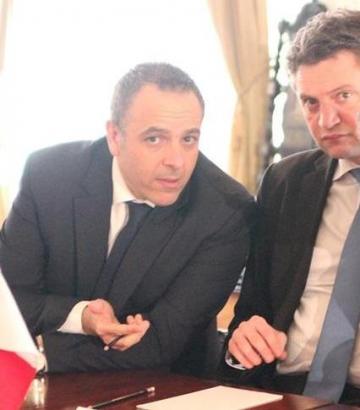
The European Commission has told the petitions committee of the European Parliament that “it fully shares the assessment made public by the Council of Europe, which found important shortcomings in the manner in which the Maltese criminal legal framework is applied in practice”.
But in spite of these concerns the European Commission says it cannot take any action after the Maltese authorities failed to prosecute politicians exposed by the Panama Papers.
The letter to the European Parliament was sent in response of a request by the Parliament’s petitions committee that was following on a petition I made in 2019. In the petition I denounced the failure of the Maltese government and institutions to apply EU law on the prevention of the use of the financial system for the purposes of money laundering or terrorist financing.
I argued that the authorities have failed to investigate specific allegations of corruption and money laundering exposed in the Panama Papers relating to Keith Schembri and Konrad Mizzi.
My petition was declared admissible under European Parliament rules in May 2019. A notice to members of the committee on Petitions was communicated to me yesterday by the European Parliament.
The Commission told the European Parliament that it fully agrees on the importance of effectively addressing rule of law-related shortcomings identified also by the European Commission. “The Commission is closely following the developments including in the framework of the European Semester”.
The Commission also told Parliament it “has carried out an assessment of the completeness of Maltese legislation transposing the Directive, and maintains a continuous dialogue with the Maltese authorities to ensure its proper application”. It’s at this point that the Commission said it has “found important shortcomings in the manner in which the Maltese criminal legal framework is applied in practice”.
But, the Commission said, it “is not in a position to follow up on the issue raised by the petitioner.” The Commission told the Parliament to advise me to “bring the case to the national authorities, including the judiciary, and if the petitioner considers that his rights or freedoms guaranteed by the European Convention on Human Rights have been violated, he may lodge a complaint with the European Court of Human Rights”.
Of course, complaints about the impunity enjoyed by Keith Schembri and Konrad Mizzi following the Panama Papers revelations have been filed in Maltese courts by Simon Busuttil and by Repubblika. Inquiries are ongoing.
Meantime at the Daphne Caruana Galizia inquiry, the former attorney general Peter Grech and several former and incumbent senior police officers testified how they dragged investigations in these cases or avoided taking any action altogether.
I will be discussing the response I got from the European Parliament with my colleagues at Repubblika to decide on the next steps. Whilst I am frustrated that institutions seem unable or unwilling to take action on financial crimes committed by people in power, I have no intention of giving up now.
My speech yesterday marking 40 months since Daphne Caruana Galizia was killed is just about that. She discovered these scandals, risks and lost her life documenting and exposing them. We owe it to her to finish what she started.
Download a copy of the European Parliament’s notice here: CM_1195844EN.